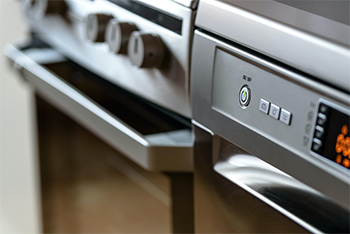When you go through the process to purchase or sell your house, you will probably get mail sent to you about a home warranty agreement. While home warranties are a useful tool for protecting both buyers and sellers, here is how you can know if a home warranty is really necessary for your real estate transaction.
What is a Home Warranty Plan?
A home warranty plan is a contractual agreement to provide a homeowner with discounted repair and replacement services. However, the words “home warranty” are not always used explicitly to mean a legal warranty is conveyed.
In many cases, a home warranty is not a warranty at all. Rather the agreement is a home service contract that covers the repair and/or replacement costs of home appliances, major systems such as heating and cooling, and possibly other components of a home, structural or otherwise.
Coverage varies significantly across home warranty companies. Some plans often require periodic home inspections to comply with maintenance schedules.
What is Covered in a Home Warranty?
So what exactly is covered in a home warranty plan? Most companies cover plumbing, electrical, and heating systems, as well as refrigerators, dishwashers, and microwaves in their agreements.
Some charge additional coverage for appliances, such as washers and dryers, generators, and water heaters. Home warranties are primarily in place to repair or replace old worn-out systems that have been neglected or inadequately cared for by the homeowner.
What is NOT Covered in the Agreement?
Many home warranty companies have limitations within their contracts. Some home warranty companies have an overall limit set, where anything in the contract is covered up to a certain amount of money.
Others will only cover certain items after they have been inspected and deemed coverable.
Home Warranties vs Homeowner’s Insurance
The primary difference between home warranties vs. homeowner’s insurance is that typical wear and tear is not covered by homeowners insurance.
Home warranties cover your home’s internal components — such as systems and home appliances — in the event of damage from everyday wear and tear.
Homeowners insurance is different because it covers damage to your personal property and the structural integrity of your home caused by major events including natural disasters, burglary, vandalism, or events that are sudden and or accidental.
Buyer Home Warranties vs. Seller Home Warranties
So, who might be an ideal candidate for a buyer home warranty plan? There is no ideal situation for buyers or sellers who should acquire a home warranty.
The decision to purchase a home warranty plan should be made based on one’s personal level of comfort with the level of risk they are willing to take on, especially for buyers.
Sellers may want to get a home warranty when the home is on the market to make sure that if anything happens before closing the items can be repaired and in the state they were in when potential buyers last saw them. The agreement can offer peace of mind to the seller’s and buyers, and avoid any unforeseen issue that may occur.
This is also nice because home inspections usually check/test all of these systems and may illuminate issues that were unknown.

